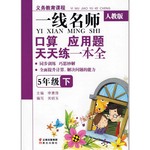题目内容
Chinese people think a lot about food. 1 a matter of fact, I think that they’re sometimes obsessed(痴迷)with it. My first practice of this aspect of Chinese culture came at a banquet(宴会)during a trip to Beijing in 1998. I had eaten Chinese food often, but I could not have 2 how fabulous (丰盛的) a real Chinese banquet could be. The first six or seven dishes seemed to 3_ the table, with plates 4 _balanced one on top of another. I thought this vast 5_ of food was the total number of dishes to be served, and I started eating 6 . Everyone else just 7_a bit of each dish and then put their chopsticks down, continuing to 8_. “They can’t have very big appetites,” I thought.
To my 9_, more dishes arrived , plus soups, side dishes, and desserts. There was enough to feed a whole army. No 10 my fellow guests had had only a few bites of each dish; they knew 11_was still to come. But I was already so 12 that I could only wait as the banquet 13__.
Another aspect of “food culture” is that the Chinese seem to eat almost every part of every animal—much to the horror of many westerners. Stomach, ears, tongue, tail, hoof and lungs are all 14 to end up on the dinner table in front of you. The first time I saw a three-year-old kid 15_ chewing a chicken’s head, I had bad dreams for weeks.
These days I enjoy that sort of food myself. 16_ , there are other kinds of foods that have taken longer for me to 17__ . The infamous (臭名昭著的) choudoufu is a(n) 18 _ Just when I got used to it, I found another 19 _on a trip to Hunan: deep-fried choudoufu, a terrible black thing that looked and 20 like a burnt tennis shoe. Maybe I will get used to it, too—someday.
1. A. To B. With C. As D. Toward
2. A. directed B. introduced C. explained D. imagined
3. A. equip B. furnish C. fill D. complete
4. A. dangerously B. beautifully C. highly D. closely
5. A. mixture B. wave C. quantity D. preparation
6. A. hurriedly B. anxiously C. greedily D. happily
7. A. smelt B. tasted C. examined D. checked
8. A. look B. chat C. drink D.wait
9. A. joy B. disappointment C. surprise D. excitement
10. A. need B. wonder C. doubt D. use
11. A. that B. what C. which D. whether
12. A. angry B. full C. hungry D. bored
13. A. ended B. stopped C. finished D. continued
14. A. possible B. likely C. probable D.sure
15. A.cheerfully B. regretfully C.generally D. helplessly
16. A.Besides B. However C. Anyhow D. Therefore
17. A.receive B. cook C. accept D. adapt
18. A. reason B. sample C. example D. cause
19. A. interest B. variety C. hobby D. diet
20. A. smelled B.tasted C. chewed D. fried
CDCAB CBBCB BBDBA BDCBA

 新课标同步训练系列答案
新课标同步训练系列答案 一线名师口算应用题天天练一本全系列答案
一线名师口算应用题天天练一本全系列答案
| |||||||||||||||||||||||||||||||||||||||||||||||||||||||||||||||||||||||||